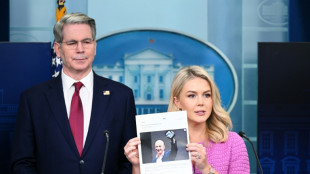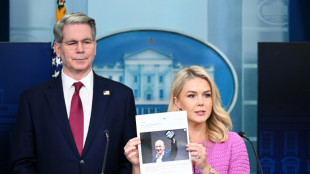

Multiple challenges await Canada's Carney
Canadian Prime Minister Mark Carney celebrated election victory on Tuesday, but he admits "daunting" challenges await, including handling Donald Trump and reshaping the economy.
"There is going to be a very short honeymoon," Marci Surkes, a former advisor to Carney's predecessor Justin Trudeau, told AFP.
Carney acknowledged in a victory speech that the coming months will be difficult, but said he had the experience to lead Canada through tumultuous times.
"It is a time to be bold to meet this crisis," he told a cheering crowd in Ottawa after the Liberal Party's comeback against the Conservatives.
"The challenges ahead are daunting," he said.
"Big changes, like the ones we're experiencing, are always worrying. We have a long way to go, but I have confidence, I have confidence in you, I have confidence in Canada."
Carney will first have to figure out how to deal with threats from the mercurial American president, who marked election day by again insisting Canada should become the 51st US state.
And he also will have to roll out measures to transform the Canadian economy to make it less reliant on the United States, its largest but no longer reliable trading partner.
The nation of 41 million people sends three-quarters of its exports to the United States, and tariffs imposed by Trump -- particularly on the automotive and steel sectors -- are already damaging the economy.
- No quick fixes -
Since Trump "is trying to fundamentally restructure the American economy," Canada will have to "reinvent" its own, Carney declared during the campaign, warning that the time for close cooperation with the United States was over.
Carney has already signaled the need to remove trade barriers between Canadian provinces and to strengthen ties with Europe -- where he made his first foreign trip after replacing Justin Trudeau as prime minister in March.
But these problems cannot be solved quickly, and Canada faces "huge critical infrastructure challenges in terms of being able to even move our commodities to markets," Surkes noted.
Opening new trade corridors will "need considerable investment" and represents a "generational challenge," she said.
While searching for new markets is laudable, it doesn't offer "quick fixes" to Canada's trade woes, said Steve Verheul, Canadian deputy minister of trade during Trump's first term.
For him, restoring free trade with Washington will be paramount: "We need them. They need us."
- 'Titanic effort' -
Trump and Carney announced before the election that the two sides would meet to discuss trade relations as early as May.
They are also expected to meet in Western Canada in June for the G7 summit.
It will take a "titanic effort" to resolve the trade war, believes Sandra Aube, a former Liberal advisor who served as Foreign Affairs Minister Melanie Joly's chief of staff until 2022.
"There will need to be significant reengagement at all levels with the US government to see what Canada can do," she said.
Rethinking Canadian defense is also high on Carney's agenda.
He has unveiled an ambitious program to assert Canada's sovereignty, particularly in the Arctic, and reducing dependence on allies, notably the United States.
"This is an element linked to the economy because major investments of billions of dollars will benefit the Canadian manufacturing sector and defense," Aube said.
At the same time, the prime minister -- who may need the support of small parties to secure a parliamentary majority -- will not be able to ignore everyday issues such as high costs of living and a housing crisis.
"These issues are real and pressing," said Surkes, adding Carney will need to appoint "new blood" to his cabinet to demonstrate that he is more focused on business and the economy than his predecessor.
X.Ajmi--al-Hayat



